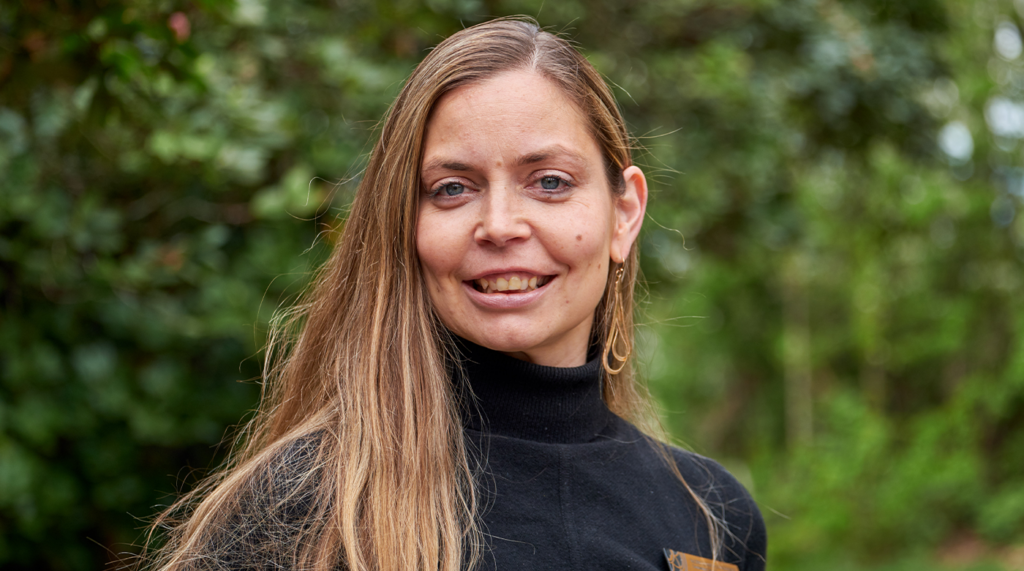Page 480 • (12,540 results in 0.023 seconds)
-
historical juncture.) German speakers have become household names in the fields studied by humanities scholars, whether in literature (Johann Wolfgang von Goethe, the brothers Grimm, Franz Kafka), film (Werner Herzog, Wim Wenders), music (Wolfgang Amadeus Mozart, Johann Sebastian Bach, Ludwig van Beethoven), art (Caspar David Friedrich, Anselm Kiefer, Gerhard Richter), philosophy (Immanuel Kant, Karl Marx, Hannah Arendt), and religion (Martin Luther, Dietrich Bonhoeffer, Paul Tillich), to name a few
-

groups and spaces of belonging, and formal and informal mentors Finally, with faculty, they are investing in learning trauma-informed pedagogy and care for our students and selves. Let's keep the conversation going! Read the additional Bjug Day Q&A's Bjug Day Q&A: ScholarshipsBjug Day Q&A: AthleticsBjug Day Q&A: Academics Read Previous BJUG DAY: Q&A with Dr. Suzanne Crawford O’Brien Read Next THE PEOPLE’S GATHERING: Truth Tellin’ About Critical Race Theory COMMENTS*Note: All comments are moderated
-
campus. This is her first receipt of a Holocaust Studies award. She studied “Nazi Treatment of Black American and Jewish American POWs.” It is widely noted that American, British and French POWs received far better treatment during World War II than did Russian POWs or other captured troops from central and Eastern Europe. This reflected Nazi ideas on race and their assumption of the inferiority of Slavic peoples. Kelsey has noted, however, the brutal treatment often accorded to Black American and
-
History tutor for other students on campus. This is her first receipt of a Holocaust Studies award. She studied “Nazi Treatment of Black American and Jewish American POWs.” It is widely noted that American, British and French POWs received far better treatment during World War II than did Russian POWs or other captured troops from central and Eastern Europe. This reflected Nazi ideas on race and their assumption of the inferiority of Slavic peoples. Kelsey has noted, however, the brutal treatment
-
campus. This is her first receipt of a Holocaust Studies award. She studied “Nazi Treatment of Black American and Jewish American POWs.” It is widely noted that American, British and French POWs received far better treatment during World War II than did Russian POWs or other captured troops from central and Eastern Europe. This reflected Nazi ideas on race and their assumption of the inferiority of Slavic peoples. Kelsey has noted, however, the brutal treatment often accorded to Black American and
-
for other students on campus. This is her first receipt of a Holocaust Studies award. She studied “Nazi Treatment of Black American and Jewish American POWs.” It is widely noted that American, British and French POWs received far better treatment during World War II than did Russian POWs or other captured troops from central and Eastern Europe. This reflected Nazi ideas on race and their assumption of the inferiority of Slavic peoples. Kelsey has noted, however, the brutal treatment often accorded
-
campus. This is her first receipt of a Holocaust Studies award. She studied “Nazi Treatment of Black American and Jewish American POWs.” It is widely noted that American, British and French POWs received far better treatment during World War II than did Russian POWs or other captured troops from central and Eastern Europe. This reflected Nazi ideas on race and their assumption of the inferiority of Slavic peoples. Kelsey has noted, however, the brutal treatment often accorded to Black American and
-
who come to PLU to study STEM subjects. Winning the grant was a team effort of PLU’s Division of Natural Sciences faculty, including Tina Saxowsky, principal investigator and associate professor of chemistry, along with Dean of Natural Sciences and biology Professor Ann Auman and faculty members Shannon Seidel, assistant professor of biology, and Amy Siegesmund, associate professor of biology. “We are very excited about the ability to implement the work outlined in our proposal,” Auman said. “Not
-
Christiansen, F. Melius: O Day Full Of Grace Dubra, Rihards: Stetit Angelus Poulenc, Francis: Sept Chansons van Beethoven, Ludwig: Mass in C Major, op. 86 van Beethoven, Ludwig: Symphony No. 9 in D Minor, op. 125 2013-2014Handel, G. F.: Messiah (excerpts from Parts I and II) Brahms, Johannes: Warum ist das Licht gegeben?, op. 74, no. 1 Luther, Martin/arr. Olds, W.B.: A Mighty Fortress Is Our God Galante, Brian Edward: Look Down, Fair Moon Pearsall, Robert Lucas: Lay a Garland Vaughan Williams, Ralph: O
-

nothing back: If something was wrong with a student performer’s shoes, posture, grammar, pacing or pitch—she called it. Blythe is recognized as one of the best in her generation. She has visited the Metropolitan Opera in New York and the San Francisco Opera and is performing in Semele with the Seattle Opera through March 7. Vocal Studies professor James L. Brown told PLU’s The Mast that Blythe “is an advocate for opera and a champion of the whole gambit of vocal music.” Fifty Lutes applied to perform
Do you have any feedback for us? If so, feel free to use our Feedback Form.


